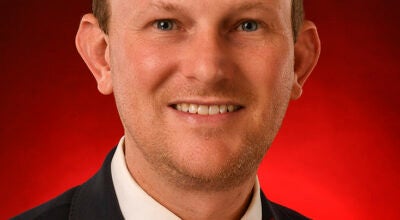It’s time for an economic U-turn
Published 11:00 pm Wednesday, May 23, 2012
Our country is in crisis. Decades of overspending have brought us to what Federal Reserve Chairman Ben Bernanke recently described as a “fiscal cliff.” For the fourth straight year, the federal government will run a deficit in excess of $1 trillion. The deficits accumulate, and the ultimate result is $15 trillion in national debt.
Alabama has problems, too. Despite our reputation for being a “red state,” the scale and scope of government continues to grow. Here in “Sweet Home,” one in every six workers is a state or local government employee. Alabama’s total number of public sector workers has gone from 150,000 to more than 300,000 in less than 40 years, and taxes have risen to pay for more public employees. The trends we see in Alabama and at the national level are the trends we see in most states: government is growing, and, as a result, economic freedom and individual liberties are quickly being eroded.
Less than two years ago, my wife, daughter, and I moved from Georgia to Troy so that I could head Troy University’s new Manuel H. Johnson Center for Political Economy. The center’s namesake, Manley Johnson, and other donors are funding the center because they are worried about the national and state trends I described above. My wife and I share their concerns, and we believe my work in Troy will help to advance liberty and make the world a better place for ourselves and our children.
The faculty and staff of the Johnson Center are committed to research and teaching that focus on economic freedom and individual liberty. Our center is not partisan; we believe Democrats and Republicans are equally focused on short-term political gains, rather than promoting the American dream (i.e, the ideal that prosperity, both for individuals and for society as a whole, can be most fully realized if people are free to innovate, work hard, and invest their gains as they see fit without government constraints.) Both parties have “kicked the can” of entitlement reform down the road. And, in 2008 and 2009, both parties were stumbling over themselves to spend billions on unproven – and ultimately, in most cases, unsuccessful – solutions to the worst financial crisis since the Great Depression unfolded. Reform at the federal level and across the states is desperately needed, and our center is looking to engage academics, policymakers, students, and our community in what Arthur Brooks of the American Enterprise Institute describes as “the battle for America’s future.”
Fixing America’s troubles cannot wait much longer, so engagement with our students and community must happen now. The data make my point for me: if every man, woman, and child in America were to write a check for $50,000 to the federal government, we still would not have our national debt paid off! Our national debt will rise in the future, and politicians, who generally avoid talk of serious belt-tightening, need to receive pressure from an educated constituency to make fiscal reforms.
We, as a nation, could avoid the “fiscal cliff” that concerns Mr. Bernanke if we act quickly and reverse course, but that requires principled leadership and politicians willing to “fall on the sword” for the sake of us all. It means doing the opposite of what we have been doing politically: cutting spending instead of increasing it, and eliminating silly regulations instead of adding thousands of pages to the Federal Register each year. Getting our country away from the cliff ultimately requires us to turn sharply back towards the policies and ideals that made our country grea – ideals of liberty and free exchange – and this return to our founding principles must begin with us, the citizens of America.
Scott Beaulier is Executive Director of the Manuel H. Johnson Center for Political Economy at Troy University. To better engage with the community and encourage a conversation about current economic and political issues, he writes a weekly, exclusive column for The Messenger.


